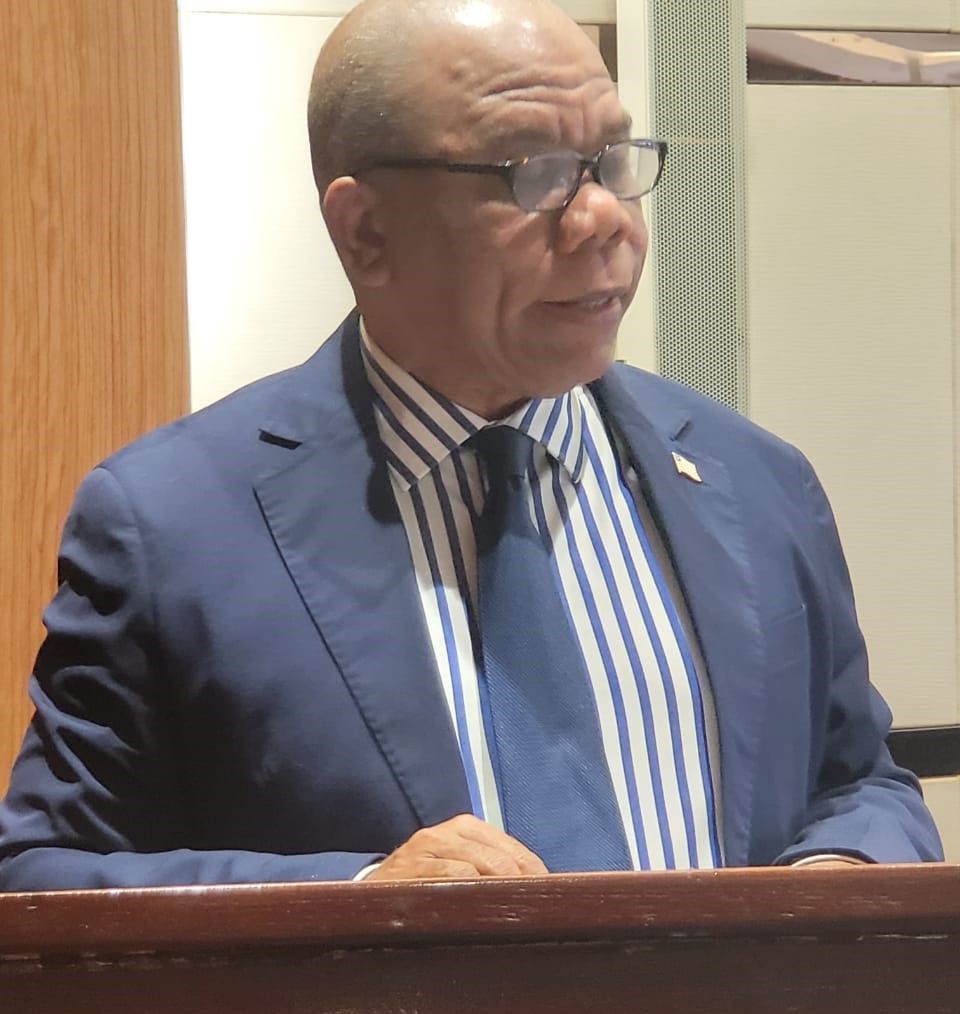The Liberian Senate’s decision to collaborate with the majority bloc in the House of Representatives has sparked dissent within its own ranks, particularly from two prominent members of the former ruling party, the Congress for Democratic Change (CDC). Senators Numene T.H. Bartekwa and Albert Tugbe Chie have publicly distanced themselves from the Senate’s resolution, emphasizing their abstention from the vote that formalized this partnership. This act of defiance underscores the deep divisions within the Liberian legislature and the lingering tensions stemming from the controversial removal of House Speaker Bhofal Chambers.
The senators’ abstention reflects their disapproval of the process that led to the formation of the current majority bloc in the House, which they view as illegitimate. They cite the unconstitutional removal of Speaker Chambers, a fellow CDC member, as the root cause of the current legislative impasse. Senator Bartekwa, in his capacity as Acting Chairman of the Southeastern Legislative Caucus, had actively advocated for Speaker Chambers’ reinstatement and urged his fellow legislators to support the embattled Speaker. Despite his efforts, including direct engagement with regional legislators and public pronouncements on social media, the Senate ultimately chose to recognize the new majority bloc led by Representative Richard Nagbe Koon.
Senator Bartekwa’s office issued a press release clarifying his and Senator Chie’s position, emphasizing their abstention from the Senate vote. They maintain that their decision was informed by a thorough understanding of the legislative turmoil and the subsequent legal opinion issued by the Supreme Court. While acknowledging their inability to overturn the Senate’s decision, they felt compelled to inform the public of their dissenting stance. This public declaration serves as a testament to their commitment to due process and their belief in the legitimacy of Speaker Chambers’ leadership. Their actions also demonstrate a willingness to break ranks with their colleagues in the Senate and uphold their principles, even in the face of majority opposition.
Their defiance gains further significance given the recent expulsion of Representative Thomas Fallah, the Deputy Speaker of the House, from the CDC. Representative Fallah’s expulsion was a direct consequence of his decision to join the majority bloc that ousted Speaker Chambers. This disciplinary action by the CDC highlights the party’s internal struggle to maintain unity and control amidst the shifting political landscape in the House. Senators Bartekwa and Chie’s abstention, coupled with Representative Fallah’s expulsion, underscores the deep fissures within the CDC and the broader Liberian political scene. It suggests a struggle for power and influence within the party and raises questions about its future direction and cohesion.
The senators’ decision to abstain, rather than voting against the Senate’s resolution, is a nuanced political maneuver. It allows them to express their disapproval without directly confronting the Senate majority. This strategic approach allows them to maintain a working relationship with their colleagues while simultaneously registering their dissent. It also minimizes the risk of further alienating themselves within the Senate, while still sending a clear message of their opposition to the current House leadership structure. This careful balancing act reflects the complex political realities they navigate.
The unfolding political drama in Liberia highlights the fragility of democratic institutions and the challenges of maintaining stability in a post-conflict environment. The ongoing disputes within the legislature, coupled with the internal divisions within political parties, pose a significant threat to the country’s democratic progress. The senators’ actions, while seemingly a small act of defiance, represent a larger struggle for upholding constitutional principles and ensuring accountability within the Liberian government. It remains to be seen how these internal conflicts will ultimately be resolved and what impact they will have on the country’s political future. However, the senators’ public stance serves as a reminder of the importance of dissent and the role of individual legislators in upholding democratic values.


